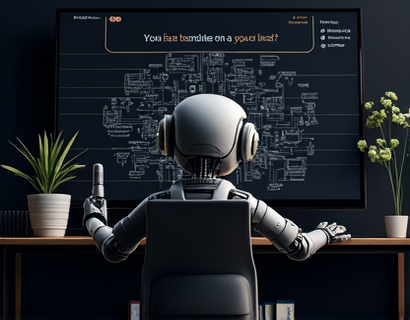Smart Home Elevation: Embracing the Future of Living with Cutting-Edge Appliances
In the ever-evolving landscape of home technology, the concept of a smart home has transcended from a futuristic dream to a tangible reality. The integration of advanced appliances and devices into our living spaces promises not only convenience but also efficiency and comfort. This article delves into the latest innovations in smart home solutions, highlighting appliances that are redefining modern living. From intelligent automation to energy efficiency, these cutting-edge devices are designed to seamlessly blend into your daily routines, elevating your lifestyle to new heights.
The journey towards a smarter home begins with understanding the core benefits of smart appliances. These devices are equipped with advanced sensors, connectivity options, and user-friendly interfaces that allow for remote control and monitoring through smartphones or voice assistants. The primary advantage is the ability to manage and optimize various household functions with unprecedented ease. For instance, smart thermostats can learn your temperature preferences and adjust settings automatically, leading to significant energy savings. Similarly, smart lighting systems can be programmed to mimic natural light cycles, enhancing both mood and productivity.
One of the most transformative aspects of smart home technology is its impact on energy consumption. Modern appliances are designed with energy efficiency in mind, incorporating features that reduce power usage without compromising performance. Smart refrigerators, for example, come with advanced insulation and adaptive defrost cycles that minimize energy waste. These appliances not only help lower utility bills but also contribute to a more sustainable living environment. The integration of renewable energy sources, such as solar panels, further enhances the eco-friendliness of smart homes, making them a viable option for environmentally conscious consumers.
Another area where smart technology has made significant strides is in home security. Gone are the days of basic locks and alarm systems. Today's smart security solutions offer comprehensive protection through interconnected devices. Smart locks can be controlled remotely, allowing you to grant access to guests or service providers without being physically present. Security cameras with night vision and motion detection provide real-time monitoring, and smart alarm systems can send alerts directly to your phone in case of any breaches. This level of connectivity ensures that your home is always protected, no matter where you are.
Voice-activated assistants have become a cornerstone of smart home technology, offering hands-free control over various devices. These assistants, integrated into speakers and smart displays, can perform a wide range of tasks, from playing music and setting reminders to controlling smart home devices. The convenience of voice commands makes it easier than ever to manage your home, especially for those with mobility issues or busy schedules. Moreover, the continuous learning capabilities of these assistants mean that they become more intuitive and personalized over time, adapting to your specific needs and preferences.
Kitchen appliances have also undergone a smart revolution, transforming the way we cook and prepare meals. Smart ovens and stoves feature touch screens and Wi-Fi connectivity, allowing you to preheat, set timers, and even start cooking from your smartphone. These appliances often come with pre-set cooking programs for various dishes, ensuring consistent results and saving time. Induction cooktops, another smart kitchen innovation, use electromagnetic fields to heat cookware directly, providing faster and more efficient cooking. The integration of these appliances into smart home systems enables seamless coordination, such as adjusting the oven temperature based on the meal being prepared.
In the realm of home entertainment, smart TVs and audio systems have set new standards for immersive experiences. Smart TVs not only offer high-definition visuals but also connect to the internet, enabling access to streaming services, social media, and smart home controls. Voice commands can change channels, adjust volume, and even control other smart devices in the room. Similarly, smart speakers and soundbars deliver crystal-clear audio, enhancing the overall entertainment experience. These devices often integrate with popular music and video platforms, making it easy to discover and enjoy new content.
Bathroom appliances have also seen significant advancements, focusing on hygiene, convenience, and luxury. Smart toilets with heated seats, automatic lid opening, and built-in deodorizers offer a level of comfort that was once unimaginable. Smart faucets with touchless technology and temperature control ensure efficient water usage and hygiene. Additionally, smart mirrors with integrated displays can show weather updates, news, and even act as a virtual try-on for makeup and clothing, adding a touch of modern sophistication to your daily routine.
The integration of smart home technology extends beyond individual appliances to encompass the entire home environment. Smart home hubs serve as central control points, allowing all connected devices to work in harmony. These hubs can be voice-activated or controlled through mobile apps, providing a unified interface for managing lighting, temperature, security, and entertainment systems. The convenience of having everything in one place cannot be overstated, as it simplifies the user experience and ensures that all aspects of your home are working together efficiently.
For tech-savvy homeowners, the allure of smart home technology lies in its potential for customization and automation. Smart home automation systems can be programmed to perform complex tasks based on specific triggers or schedules. For example, a smart home system can automatically lock all doors, turn off lights, and adjust the thermostat when you leave for work. These automated routines not only enhance security but also contribute to energy savings and a more organized living space. The flexibility to tailor these routines to your unique lifestyle ensures that your smart home remains a personalized and efficient environment.
As the smart home market continues to grow, the focus on interoperability and standardization becomes increasingly important. Ensuring that devices from different manufacturers can communicate and work together seamlessly is crucial for a cohesive smart home experience. Industry standards such as Zigbee, Z-Wave, and Bluetooth Mesh are playing a vital role in achieving this goal. By adhering to these standards, manufacturers can create devices that integrate smoothly into existing smart home ecosystems, providing users with more options and greater flexibility.
The future of smart home technology holds even more exciting possibilities. The integration of artificial intelligence and machine learning is set to revolutionize how smart devices operate. AI-powered appliances can predict user preferences and adjust settings proactively, creating a truly intuitive living environment. For instance, a smart thermostat could learn your temperature preferences over time and make adjustments based on your habits and external factors like weather forecasts. Similarly, smart lighting systems could adapt to your mood and activities, enhancing both comfort and productivity.
Another promising area is the incorporation of health and wellness features into smart home devices. Smart beds with built-in health monitoring can track sleep patterns, heart rate, and other vital signs, providing valuable insights into your well-being. Smart air purifiers with advanced filtration systems can improve indoor air quality, reducing allergens and pollutants. These health-focused appliances contribute to a holistic approach to smart living, where technology not only makes life easier but also promotes a healthier lifestyle.
For those looking to embark on the journey of smart home adoption, the first step is to identify the areas of your home that would benefit most from automation and connectivity. Start with devices that offer the greatest convenience and energy savings, such as smart thermostats and lighting systems. As you become more familiar with the technology, you can expand your smart home ecosystem to include more advanced appliances and security systems. It's essential to choose devices that are compatible with your existing systems and future-proof your investments by opting for products that adhere to industry standards.
In conclusion, the integration of smart home technology represents a significant leap forward in modern living. From energy efficiency and enhanced security to personalized comfort and entertainment, the benefits are vast and varied. As technology continues to evolve, the potential for innovation in smart home appliances is limitless. Embracing these advancements not only elevates your lifestyle but also contributes to a more sustainable and connected world.










































